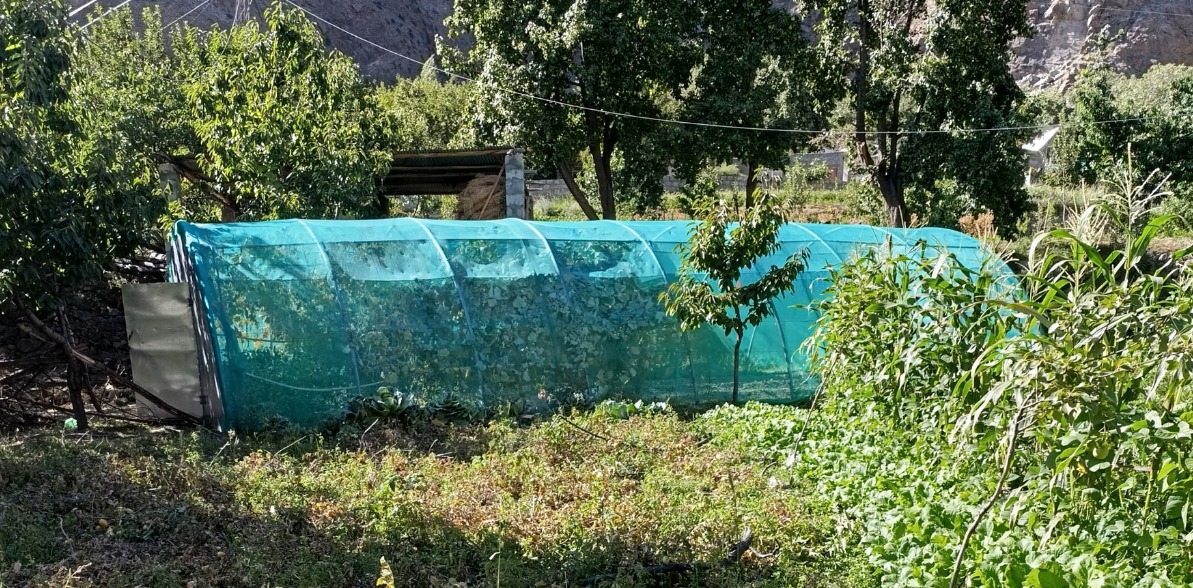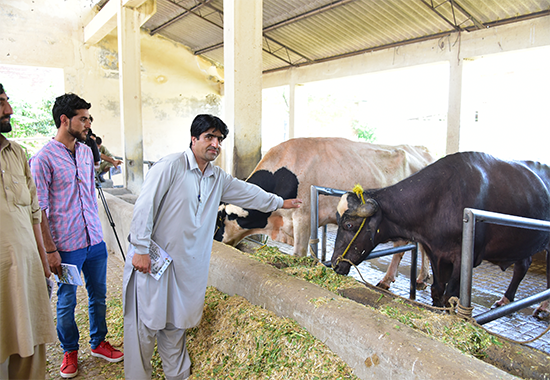The Snow Leopard Foundation (SLF) has expanded its conservation efforts across over 50 sites in Gilgit-Baltistan, Khyber Pakhtunkhwa, and Azad Jammu and Kashmir, including programs such as livestock vaccination, predator-proof corrals, and livestock insurance schemes. These initiatives are complemented by sustainable forest management, land rehabilitation, and livelihood improvement programs like Snow Leopard Enterprises (SLE) and conservation tourism. These activities have been instrumental in reducing human-snow leopard conflict, improving local livelihoods, and engaging communities in conservation efforts. A holistic approach that includes women’s empowerment and climate-resilient livelihoods is essential to ensuring the sustainability of these conservation initiatives.
Women in snow leopard habitats often represent the most marginalized segment of society. Although they play a role in managing livestock and participating in agricultural activities, cultural norms often limit their involvement in income-generating opportunities. SLF recognizes that empowering women through culturally acceptable income-generating activities can have a significant positive impact on household economies.
In 2021, SLF launched an apiculture (beekeeping) project in Upper Chitral, Khyber Pakhtunkhwa, as part of its ongoing efforts to integrate gender into its conservation and livelihood programs. A total of 40 women were trained in beekeeping and provided with bee boxes and toolkits. This initiative has helped these women enhance their household incomes and fostered a deeper understanding of wildlife conservation.
A Personal Story of Empowerment
“My name is XYZ, from Washich. I always dreamed of earning for myself and my family after completing my education, but after getting married, those dreams were put aside due to cultural norms. My husband, a government servant, supported the family, but I wanted to contribute financially to provide better education and upbringing for our children. However, I was not allowed to work outside the home.


When the Snow Leopard Foundation began working in our village through its Pakistan Snow Leopard and Ecosystem Protection (PSLEP) project, they introduced various community development initiatives. One day, my father-in-law mentioned that SLF was offering beekeeping training for women in the village. At first, I didn’t pay much attention as I had no experience with beekeeping, and no one in our area had ever tried it. We didn’t know the benefits of keeping bees.
A few days later, the president of our community organization visited our home and explained that the purpose of this training was to empower women and create income-generating opportunities. When I heard about the potential to earn, I saw a way to fulfill my dream. I signed up for the training, and soon we were taught everything about beekeeping over seven days. After the training, we were each given a bee box.
At first, it was challenging to care for the bees, but with time, I became more confident in handling them. After two years, my initial bee box has now grown into eight. Last year, I sold 8 kg of honey, earning Rs. 9,600, and this year, I earned Rs. 30,000 by selling 20 kg of honey.
Thanks to SLF, I am now able to earn a good income from home while following our cultural customs and taking care of my household. I use the money to improve the lives of my children, provide better healthcare, and raise our standard of living. My dream of contributing to my family’s income was made possible not through employment, but through the opportunities provided by SLF.
My story is just one of many. About 80% of the women trained in beekeeping are now earning a sustainable income from this initiative. To further increase profits, we hope to receive support for honey extractors and marketing assistance to reach local, national, and online markets.
We are reaping the benefits of wildlife conservation, and I now encourage other women in the community to protect our wildlife. I hope more women like me will have similar opportunities through the help of SLF.”



